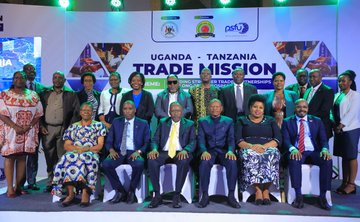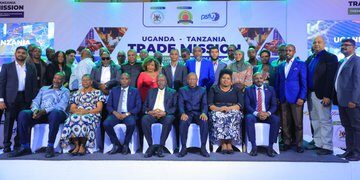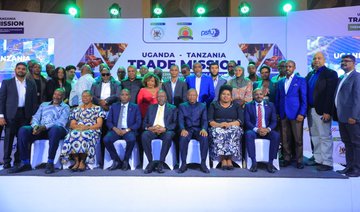The Uganda-Tanzania Trade Mission is currently underway at the Four Points by Sheraton in Kampala, centred on the theme “Building Stronger Trade Partnerships for Long-Term Prosperity” and fostering enduring economic collaboration between the two East African nations.
While opening the trade mission on Tuesday, State Minister for Trade at the Ministry of Trade, Industry and Cooperatives, Hon. Gen Wilson Mbasu Mbadi, emphasised the mission’s significance in enhancing commercial and investment ties between Uganda and Tanzania.
Minister Mbadi highlighted that this Trade Mission is a direct result of commitments made at the Uganda-Tanzania Business Forum in Dar es Salaam in May 2024. During the forum, both governments and the private sectors pledged to deepen bilateral trade, increase investment flows, and remove obstacles to the free movement of goods, services, and capital.
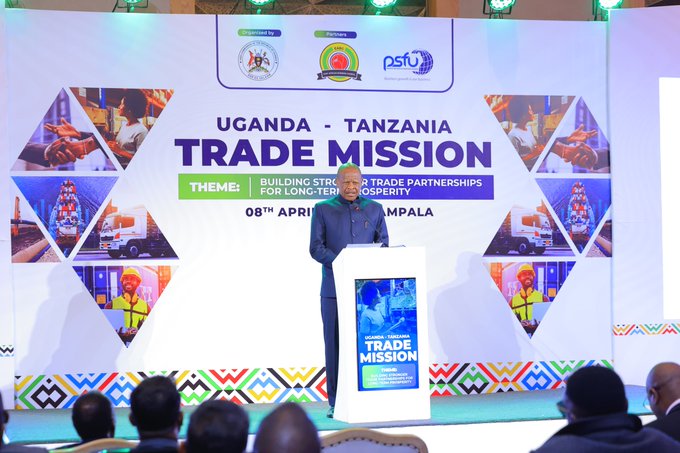
Uganda is using the Trade Mission to showcase its dynamic industrial and entrepreneurial sector, featuring companies like Liaoshen Industrial Park, Pearl Dairy, and Namanve Industrial Park. These companies offer opportunities for joint ventures, supply chain partnerships, and market integration, which are crucial for promoting a competitive and integrated regional economy.
“We also celebrate transformative projects like the East African Crude Oil Pipeline (EACOP), which will unlock over USD 20 billion in revenue, create 10,000+ jobs, and boost sectors like energy, logistics, and telecommunications. Uganda remains committed to building a conducive business environment, focused on reducing transaction costs and expanding market access,” stated Minister Mbadi.
In his address, Minister Mbadi urged delegates to use this opportunity to build trust, explore new business prospects, and work towards a more prosperous and unified East Africa.
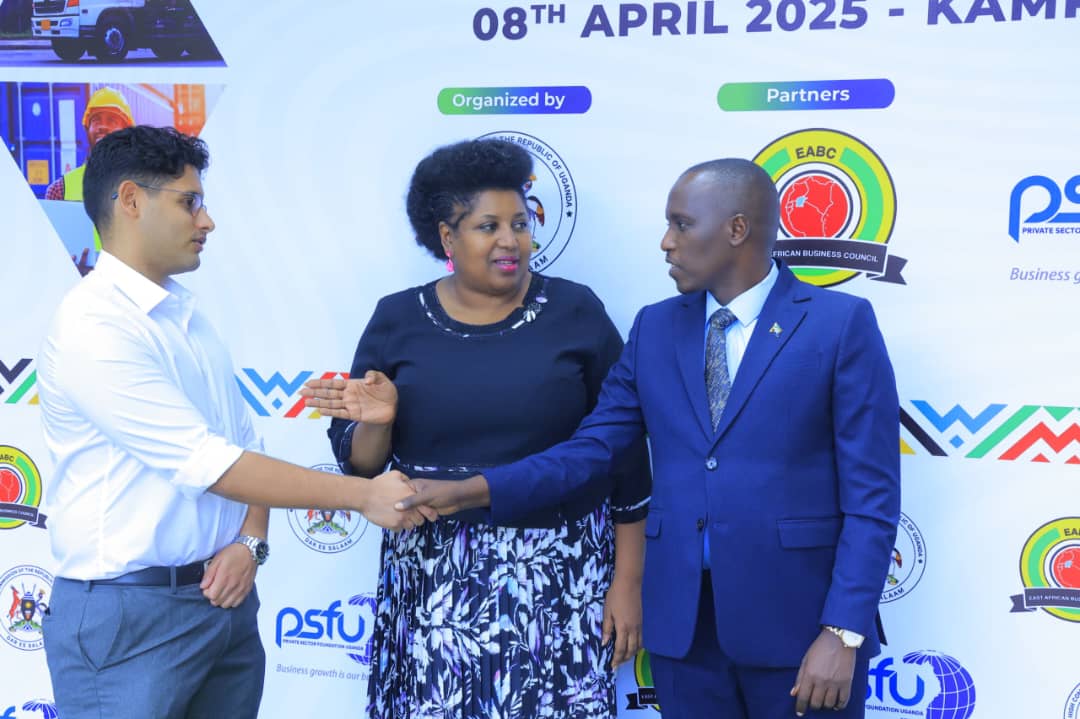
Shared Vision of Prosperity And Regional Integration
H.E. Col. (Rtd.) Fred Mwesigye, High Commissioner of the Republic of Uganda to Tanzania, expressed his enthusiasm for the Trade Mission, describing it as a significant milestone in the growing economic partnership between Uganda and Tanzania.
He explained that the mission embodies a shared vision of prosperity, regional integration, and sustainable development within the East African Community (EAC).
“Trade between Uganda and Tanzania has experienced substantial growth, with bilateral trade reaching USD 2.23 billion in 2024, up from USD 1.36 billion in 2023. Uganda’s exports to Tanzania include cement, sugar, dairy products, and pharmaceuticals, while Uganda imports key products such as petroleum, machinery, and textiles.”
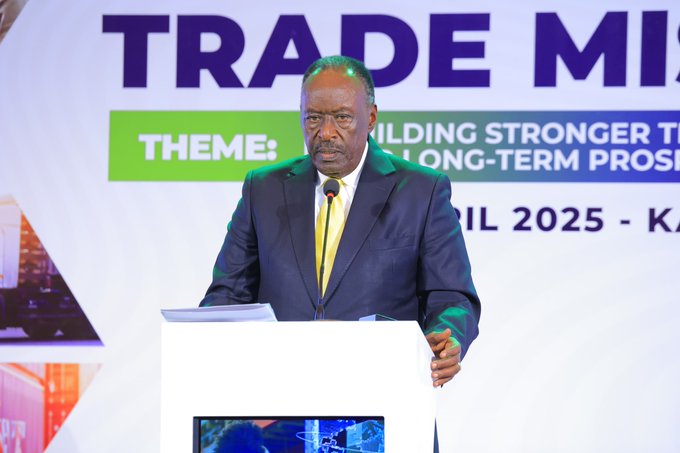
Ambassador Mwesigye outlined the mission’s objectives: expand Uganda’s exports to Tanzania and strengthen trade channels, address non-tariff barriers to facilitate smoother trade, build lasting business partnerships through B2B matchmaking, showcase investment opportunities in Uganda’s key sectors, ranging from agriculture to manufacturing and raise awareness of EAC trade policies to maximise regional trade benefits.
He emphasised the significant growth potential, noting that Uganda and Tanzania could double trade volumes within the next five years by focusing on key sectors such as agribusiness, manufacturing, and industrial goods while improving infrastructure and value addition.
The High Commissioner also highlighted the existing trade imbalance, with Uganda’s exports to Tanzania valued at $185 million and imports from Tanzania totalling $2 billion. He stressed the need to address this imbalance to enhance the trade portfolio for mutual economic benefit.

Ambassador Mwesigye emphasised the importance of integrating fragmented markets to strengthen economic resilience. He echoed the sentiments of leaders advocating for African integration to create a prosperous future, similar to the economies of integrated regions.
More Than Just Neighbours
Representing the High Commissioner of Tanzania to Uganda, Mr Masunga Kulwa Biteko, highlighted the deep-rooted friendship and a shared vision for prosperity. He emphasised that Tanzania and Uganda are not just neighbours but partners.
Biteko welcomed the Tanzanian business delegation, stressing the importance of economic cooperation and private-sector engagement to unlock trade opportunities and create lasting partnerships.
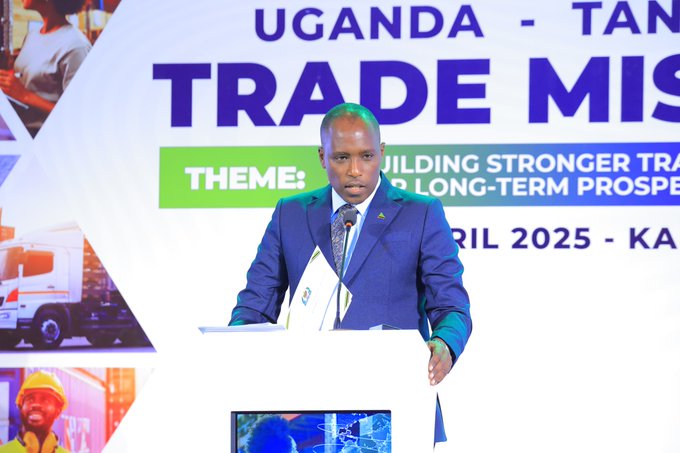
He underscored the importance of translating the vision of economic cooperation into tangible benefits for the people of both nations and highlighted Tanzania’s readiness to collaborate with stakeholders to foster a favourable business climate and promote private-sector engagement.
“Tanzania has invested significantly in infrastructure projects, including port development, railway connectivity, and air transport, to facilitate trade. The Standard Gauge Railway (SGR) and ongoing construction projects aim to enhance transportation and reduce business costs between the two countries.”
Biteko invited Ugandan stakeholders to utilize Tanzania’s ports and transport systems as a complementary gateway for trade to further enhance cooperation between Uganda and Tanzania. “The Standard Gauge Railway (SGR) now connects Dar es Salaam to Dodoma, MV Umoja & Kazi Nda serve Jinja and Kampala twice weekly, MV Mwanza Hapa Kazi II is 96% complete, and ATCL connects Dar, Zanzibar, Kilimanjaro, and Entebbe with cargo options too,” he explained.

He affirmed Tanzania’s commitment to strengthening bilateral relationships within the framework of the East African Community, the African Union, and South-South Cooperation.
Key partners in the Trade Mission include the government of Uganda, the Ministry of Foreign Affairs, the Ministry of Trade, Industry and Cooperatives, the Uganda Revenue Authority, the East African Business Council, and the Private Sector Foundation Uganda (PSFU).
